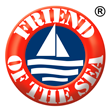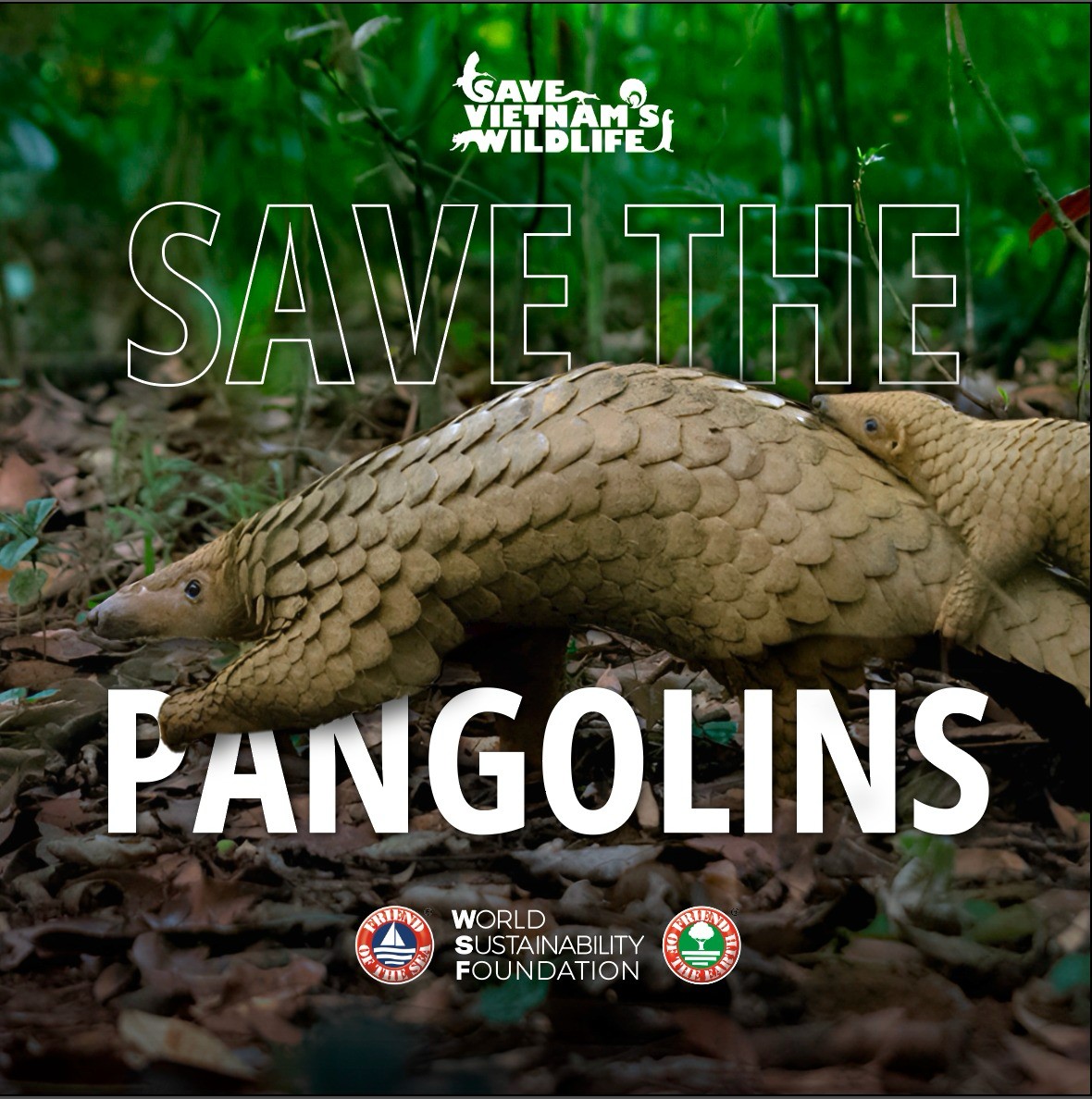The World Sustainability Foundation is proud to announce the launch of our March Pangolin Conservation Campaign, dedicated to raising awareness and support for the conservation of pangolins in collaboration with Save Vietnam’s Wildlife (SVW). Pangolins, often referred to as the world’s most trafficked mammal, continue to face severe threats to their survival due to illegal poaching and trafficking.
Throughout the month of March, we are committed to raising funds that will be directly allocated to pangolin protection efforts. With the support of Save Vietnam’s Wildlife, an organization dedicated to rescuing and rehabilitating wildlife, we aim to make a tangible difference in safeguarding pangolins and their habitats.
How can you help and support?
Your generous donations will directly support pangolin protection initiatives, including rescue operations, habitat conservation, and public awareness campaigns. By sharing our campaign on your social media platforms, and by encouraging your friends and family to join us in protecting pangolins can be incredibly helpful.
In the past, our Foundation has actively supported wildlife conservation efforts, you can read all about them on the Foundation’s website.
Together, we have made significant strides in protecting endangered species and preserving biodiversity.
What we aim in doing to save and support Pangolins, is to raise as many donations as possible for the pangolins sheltered in Save Vietnam’s Wildlife rescue center. With the donations we obtain, we will contribute to the pangolins’ food, medical, and management expenses.
Click on the link below to donate and support Pangolins now:
About Save Vietnam’s Wildlife
Save Vietnam’s Wildlife (SVW) is a national non-profit organization in Vietnam dedicated to rescuing and rehabilitating wildlife. Since its founding in July 2014, SVW has been instrumental in saving thousands of animals from illegal trade and providing them with the necessary care for release or permanent housing.
Based on the amount donated, contributions will be allocated to cover various essential expenses, including fresh food provision, veterinary supplies, enclosure maintenance, and environmental enrichment activities, as well as to support our administrative operations. Additionally, donors will receive a gratitude email, a high-definition photo of a pangolin from SVW’s center, an informative pangolin brochure, and a symbolic adoption certificate based on the level of their contribution.
WSF’s Achievements
In continuation of our longstanding collaboration with Save Vietnam’s Wildlife (SVW), our previous efforts in Vietnam have been dedicated to safeguarding critical species like the Sunda Pangolin (Manis javanica) and Chinese Pangolin (Manis pentadactyla). Noteworthy milestones include our joint fundraising initiative through WSF, providing sustenance for 9 pangolins over a month. SVW, on the other hand, has achieved remarkable success in wildlife conservation, having rescued over 2,471 wild animals across 45 species. With an impressive veterinary care regimen boasting a 92% survival rate, SVW has successfully rehabilitated and released approximately 60% of these animals back into their natural habitats. Their extensive rescue and release efforts have covered more than 220,747 km, underscoring their commitment to wildlife preservation in Vietnam.
About Pangolins
Pangolins are among the most highly threatened species on our planet, with all eight species facing severe risk due to illegal wildlife trade and habitat destruction. These unique creatures urgently need our help to ensure their survival for future generations.
Worldwide, there are eight pangolin species: four species in Asia and four species in Africa.
Vietnam is home to 2 species of pangolins, Sunda Pangolin & Chinese Pangolin, both of which are facing serious threat of extinction.
Pangolins play a crucial role in biodiversity conservation by indirectly contributing to ecological balance. Their feeding habits help control populations of ants and termites, thereby improving soil porosity and creating a conducive environment for tree growth. Additionally, our conservation initiatives have extended to safeguarding non-targeted species such as Owston’s Civet, Otters, Binturong, Leopard Cat, Mask Palm Civet, Tigers, and Bears.
Contacts
For media inquiries or further information, please contact Mario Passoni at info@worldsustainabilityfoundation.org




